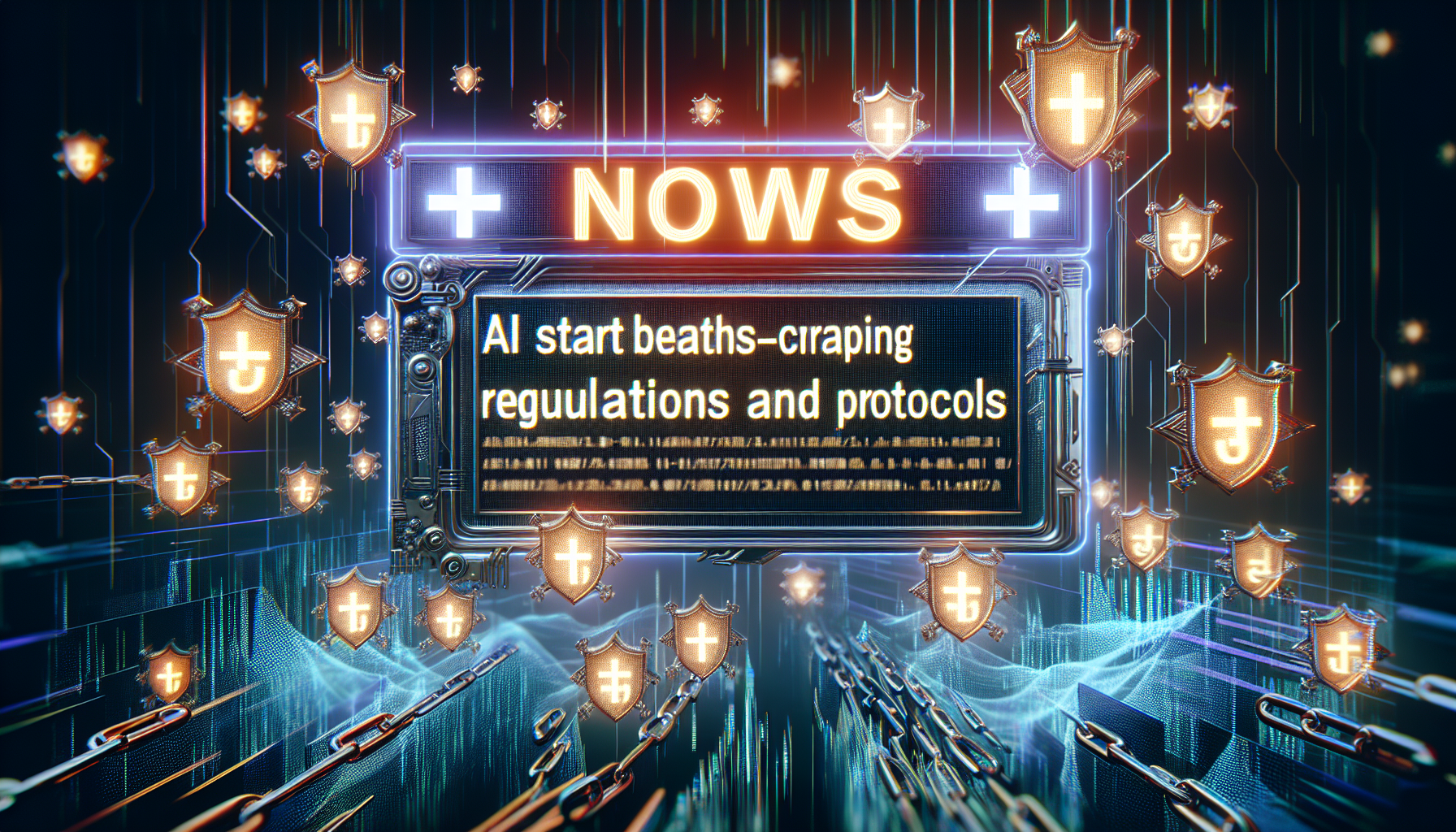 ## Controversy in AI Scraping: ClaudeBot from Anthropic Under Scrutiny
## Controversy in AI Scraping: ClaudeBot from Anthropic Under Scrutiny
The Expansion of AI Scraping
In the fast-changing landscape of artificial intelligence, data reigns supreme. Companies like Anthropic, creators of the Claude large language models, depend significantly on web scraping to collect the extensive data required for training their generative AI systems. Recently, however, this method has attracted criticism, with numerous companies alleging that AI firms are disregarding standard practices and scraping their sites without authorization.
The robots.txt Directive: A Norm Overlooked
The Robots Exclusion Protocol, widely referred to as robots.txt, serves as a guideline for websites to interact with web crawlers and various web bots. It indicates which pages are accessible to these bots and which are not. Although following robots.txt is not mandatory, responsible web crawlers typically adhere to it. Nonetheless, recent occurrences imply that some AI companies are ignoring these standards.
Freelancer and iFixit: The Latest Targets
Freelancer, a leading freelancing platform, alongside iFixit, a prominent how-to repair resource, has both charged Anthropic with disregarding their robots.txt directives. Matt Barrie, CEO of Freelancer, indicated that Anthropic’s ClaudeBot made 3.5 million visits to his site in merely four hours, severely affecting the site’s functionality and profits. In a similar vein, iFixit’s CEO, Kyle Wiens, disclosed that Anthropic’s bot accessed their servers a million times within 24 hours, leading to considerable disruption.
The Larger Context: Web Scraping by AI Companies
Freelancer and iFixit are not isolated in their complaints. Wired previously criticized another AI entity, Perplexity, for engaging in similar practices. As per a report from Business Insider, both OpenAI and Anthropic have been found to disregard robots.txt instructions. This pervasive issue has triggered numerous lawsuits, with publishers alleging copyright violations by AI firms.
The Reaction from AI Companies
In light of these allegations, Anthropic has asserted that it honors robots.txt and seeks to lessen interruptions by being considerate about the speed of its crawling activities on the same domains. The firm is presently examining the claims made by Freelancer and iFixit. In the meantime, other AI companies like OpenAI have begun forming agreements with publishers to preclude legal disputes. OpenAI’s content collaborators include News Corp, Vox Media, the Financial Times, and Reddit.
The Path Ahead for AI and Content Licensing
The debate surrounding AI scraping has underscored the necessity for more defined guidelines and arrangements between AI companies and content publishers. iFixit’s Wiens has expressed receptiveness to the concept of licensing their content for commercial purposes, hinting at a possible way forward for other publishers facing analogous challenges.
Conclusion
The ongoing conversation regarding AI scraping practices highlights the friction between technological progress and ethical considerations. As AI continues to advance, it is vital for AI companies and content publishers to reach a consensus and establish equitable practices that honor intellectual property rights while encouraging innovation.
Q&A Section
Q1: What is the Robots Exclusion Protocol (robots.txt)?
A1: The Robots Exclusion Protocol, or robots.txt, is a guideline that websites use to interface with web crawlers and other web robots. It defines which pages may and may not be accessed by these bots.
Q2: Why are AI companies like Anthropic accused of neglecting robots.txt?
A2: AI companies are charged with neglecting robots.txt due to claims that they circumvent these norms to scrape data from websites without authorization, resulting in disruptions and possible copyright violations.
Q3: In what way did Anthropic’s ClaudeBot affect Freelancer and iFixit?
A3: Anthropic’s ClaudeBot conducted millions of visits to Freelancer and iFixit over a short timeframe, significantly degrading their server functionality and causing disruptions.
Q4: What are the potential legal ramifications of AI scraping?
A4: AI scraping may lead to litigation for copyright infringement, as publishers could accuse AI companies of utilizing their content without consent.
Q5: How are AI companies dealing with these accusations?
A5: AI firms like Anthropic assert that they honor robots.txt and are looking into the incidents reported. Some companies, including OpenAI, are negotiating agreements with publishers to acquire legal content licenses.
Q6: What does the future hold for AI and content licensing?
A6: The future is likely to entail clearer instructions and agreements between AI companies and content publishers to guarantee ethical conduct and respect for intellectual property rights.
Q7: Are there any solutions suggested to tackle AI scraping problems?
A7: One proposed solution is for AI companies to enter into licensing contracts with content publishers, allowing them to utilize the content in a legal and ethical manner.